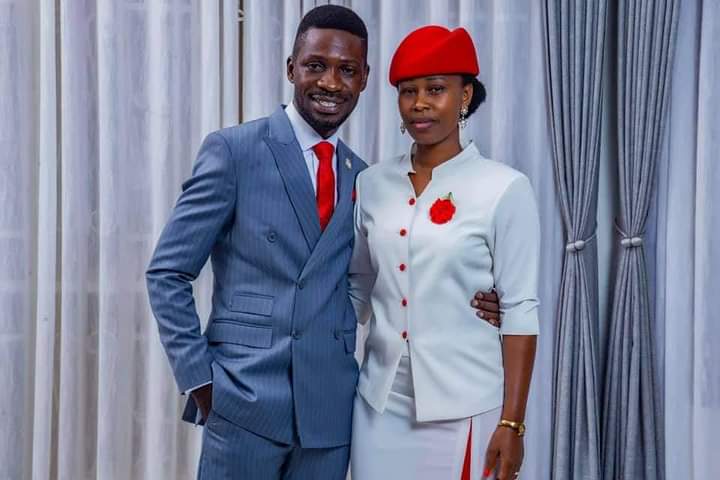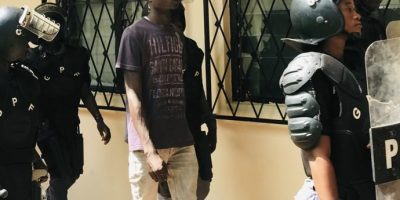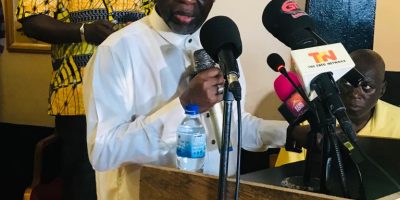 The Ugandan authorities must immediately lift the police and military siege of opposition leader Robert Kyagulanyi’s home and release him and his wife Barbara Itungo Kyagulanyi. This is an arbitrary detention, said Amnesty International as the post-election blockade entered its 7th day.
The Ugandan authorities must immediately lift the police and military siege of opposition leader Robert Kyagulanyi’s home and release him and his wife Barbara Itungo Kyagulanyi. This is an arbitrary detention, said Amnesty International as the post-election blockade entered its 7th day.
Robert Kyagulanyi and his wife, Barbara Kyagulanyi, are being held under house arrest without being presented before a judge and for a non-cognizable offence
Robert Kyagulanyi, also known as Bobi Wine, was declared runner-up by the Electoral Commission in last week’s presidential election, with 34.8% of the vote, behind President Yoweri Museveni, who it said got 58.6%. Bobi Wine and his National Unity Platform (NUP) party have alleged fraud.
“Robert Kyagulanyi and his wife, Barbara Kyagulanyi, are being held under house arrest without being presented before a judge and for a non-cognizable offence. This is also having an impact on his ability to challenge the presidential election results, in what appears to be a ploy to prevent the NUP from going to court in time,” said Deprose Muchena, Amnesty International’s Regional Director for East and Southern Africa.
“It is neither a crime to stand for president nor to want to challenge the election results in court. This continued confinement is politically motivated and a blatant violation of their human rights. It must be lifted immediately and without any conditions.”
Security personnel are also preventing people from accessing Robert Kyagulanyi despite him having reported that his family has run out of basic needs, including food. On 18 January, the security personnel stationed outside his house prevented the US Ambassador Natalie Brown from visiting Kyagulanyi’s residence, where she had gone to check on his health and safety, according to a statement issued by the US Embassy in Uganda on 18 January.
On the same day, security forces also raided the headquarters of the NUP party.
This is not the first time the Ugandan government has used arrests and detention to undermine opposition leaders’ plans to legally challenge presidential election results. During the 2016 election, the leading opposition presidential candidate at the time, Kizza Besigye, was barricaded in his home without charge the day after polls closed. He was later transferred to a police station when he rejected the presidential election results declaring President Museveni’s re-election and suggested that he would challenge them in court.
Then, as now, the authorities termed their actions “preventive arrest”. Police Spokesman Fred Enanga has been quoted in the media as saying Robert Kyagulanyi was placed under “preventive arrest” as he “planned to disrupt public order”, but he did not specify what crime was being planned. More than a week now after he was placed in house arrest, the authorities have yet to present any charges against him.
The Ugandan government must immediately end the arbitrary detention of Robert Kyagulanyi and his wife. They must also cease and desist from the abusive practice of arbitrarily detaining opposition leaders without charge
“The Ugandan government must immediately end the arbitrary detention of Robert Kyagulanyi and his wife. They must also cease and desist from the abusive practice of arbitrarily detaining opposition leaders without charge, which has become routine, especially during elections,” said Deprose Muchena.
According to the Presidential Elections Act, aggrieved presidential candidates must lodge their petitions in the Supreme Court registry within 10 days of the declaration of the election results. This means Robert Kyagulanyi and the NUP party have until 26 January to file an election petition.
Campaigning for the 2021 elections was marred by killings, arrests, beatings and disappearances, as well as harassment and intimidation of journalists and a five-day internet shutdown, among other human rights violations. At least 54 people were killed on 18 and 19 November, most of them shot dead by police and other members of the security forces after protests broke out following the arrest of Robert Kyagulanyi in the eastern Luuka district.
Many organizers and supporters of Robert Kyagulanyi’s party were arrested during and after election day and a number of them remain behind bars, some even after they were granted court bail.
Source: Culled from Amnesty International




Ma sha Allah great and thanks for sharing